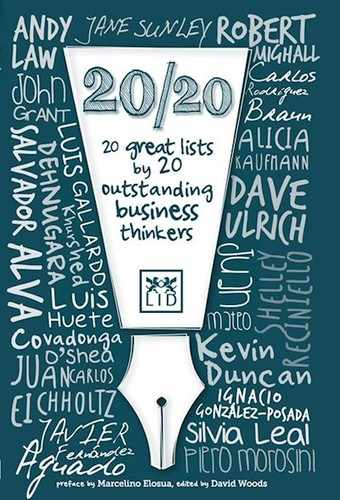1.
A REFRAMING OF NOT KNOWING
When we first shared the idea of a book on Not Knowing with people, the feedback tended to be negative:
“What’s good about not knowing things?”
“I don’t see any benefit in ignorance”
“I’d prefer to know people than not know them”
“Not knowing means I’m vulnerable, I can get cheated on if I’m naive”
“Why would I want to look illiterate, a buffoon in front of others?”
“I’m lost enough as it is, why would I want to get more lost?”
It follows that if knowing is good, then its opposite is bad. It’s a simple matter of logic for most people. But when we use the term Not Knowing we aren’t talking about the common view of those two words, but rather the ancient “apophatic tradition” used to describe what something was “not” rather than what it was. In this spirit we are distinguishing Not Knowing from the position of the absence of knowledge (otherwise known as ignorance), and from partial knowledge that can be discovered.
A common contemporary metaphor associates knowledge with light and Not Knowing with darkness. This is illustrated by the phrase “I’m in the dark.” Paradoxically, Not Knowing often leads to learning and new knowledge. Just as in nature and biology, Not Knowing can lead to growth that is unseen, like the embryo in the womb or the seed deep in the earth.
We are tempted to think that nothing is happening when it is not easily visible, yet transformation is unfolding, in the dark. We tend to place more value on the seen, things in the metaphorical light, but nature presents a perfect balance of day and night. Admitting that we don’t know allows us to learn. The darkness of Not Knowing creates the freedom and space for new sources of illumination.
In The Art of Looking Sideways, Alan Fletcher describes the idea of space as “substance,” rather than void. He gives the example of many artists who created works of art through making space for art to emerge from. For example, Cézanne, who painted and modelled space, Giacometti who sculpted by “taking the fat off space,” Ralph Richardson who used pauses in acting, and Isaac Stern who composed music with silences.56 In a similar way, the absence of knowledge in Not Knowing is a “negative” space full of potential.
The problem with the “positive” side of knowledge is that it can often crowd out the opportunities presented in the “negative,” Not Knowing space. People in Vesalius’ time couldn’t admit that perhaps Galen didn’t know everything there was to know about anatomy. For 1,400 years that belief crowded out the possibility to question, to see with new eyes, and therefore to learn new things and create new knowledge. The “knowledge” implied in former US president George W Bush’s assertion of “Mission Accomplished” after the initial phase of the second Gulf War in Iraq crowded out the possibility that it was not (accomplished). His “forthright” leadership was so unequivocal that there was no possibility of doubt. Yet doubt would have allowed more of a learning approach, which could have enabled the allies to enter Iraq with open minds about what would work, rather than assuming that military might was the solution. Prior to the global financial crisis of 2008, the common belief was that all the major businesspeople and politicians had enough knowledge of the economy to be able to make rational decisions and properly factor in the risks of their investments. Gordon Brown, the former Chancellor of the Exchequer and later Prime Minister in England, had earlier proudly claimed “An end to boom and bust.” This was later proven to be largely incorrect.
We are not talking about situations where we can know or we should know. Not Knowing doesn’t mean that we put aside everything that we already know. By entering Not Knowing, we enter a space where we are not constrained by existing knowledge. Not Knowing is a way of engaging with situations, where the way forward is not knowable, or tackling complex problems that do not have an answer. Not Knowing is an active process, a choice to open up to new experiences and learning. It is a way of living and working with complexity, ambiguity and paradox, tolerating uncertainty and the uncomfortable feelings that we notice at the edge. This view challenges the negative connotations of Not Knowing and reframes Not Knowing as a positive space of potential and opportunity, where we can access new, emergent knowledge.

